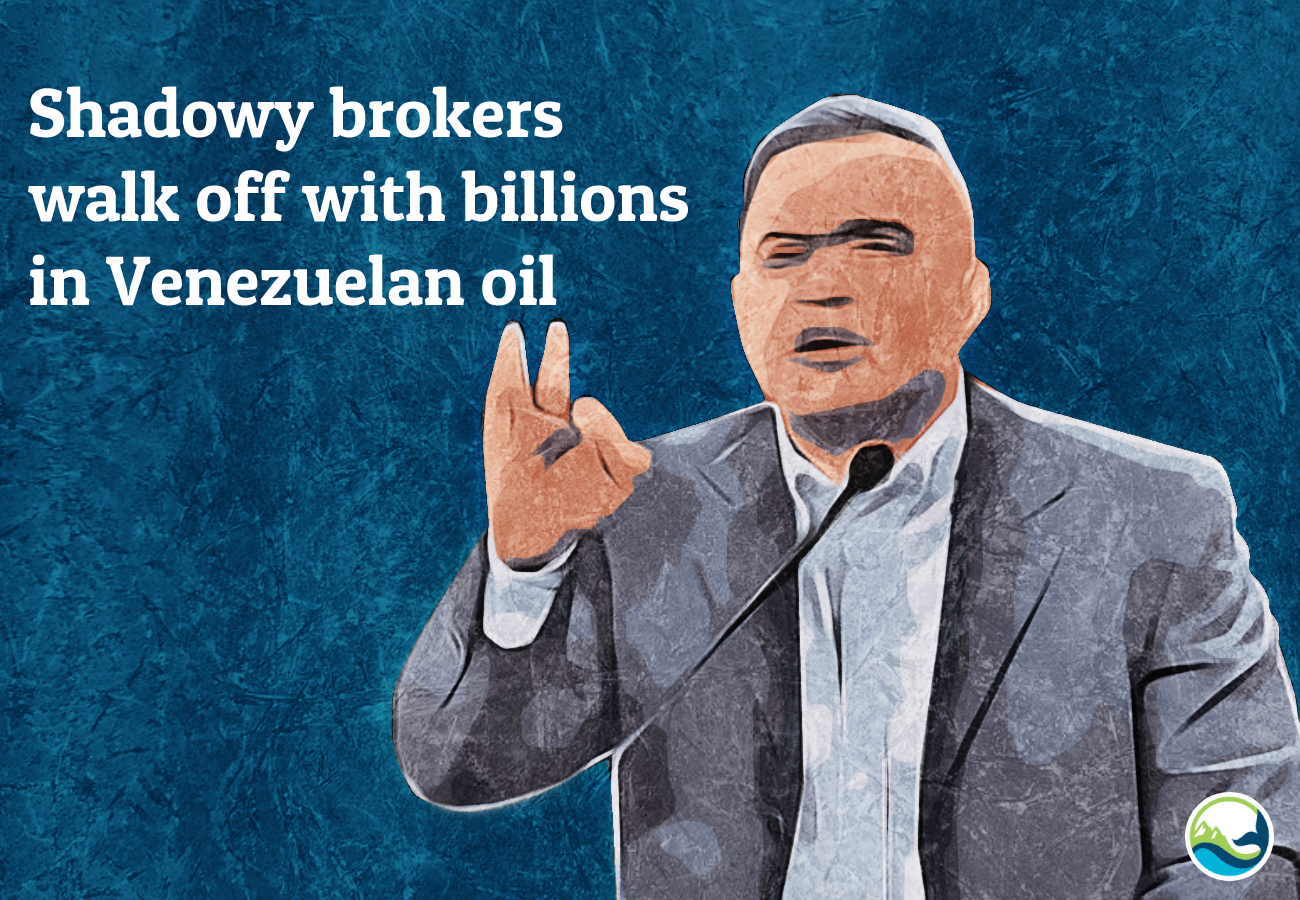
Shadowy brokers walk off with billions in Venezuelan oil
31 Mar 2023 ( Journal Record )
One startup lists as its address a small home in a working-class district in Venezuela’s capital whose owner has never heard of the firm. Another is a Hong Kong-based shell company created in 2020. Yet another belongs to a Spanish commodities trader indicted in the U.S. for allegedly helping Russian oligarchs launder ill-gotten profits.
They are among the dozens of obscure middlemen and go-betweens at the center of a new crackdown in Venezuela on corruption in the state-run oil industry that has government insiders scurrying for cover. At the same time, regular Venezuelans are asking how more than $20 billion in proceeds from oil shipments seemingly vanished.
The purge began this month when authorities arrested 21 people, including business executives, senior officials and a lawmaker, as part of an investigation into missing payments for oil shipments. In a sign of the government’s desire to promote its anti-corruption crusade, state media this week were filled with images of the defendants dressed in orange jumpsuits walking into their initial judicial hearing.
Corruption has long plagued Venezuela – the OPEC nation was the fourth-most corrupt in the world in the latest rankings by Transparency International – but those in positions of power are rarely held accountable.
And when high profile arrests do take place, Venezuelans tend to view them as the result of a behind-the-scenes tug of war among rival heavyweights in the ruling socialist party, and not any impartial meting out of justice in a country where most institutions lack independence.
An entrenched culture of corruption and the inherently opaque nature of trading illegal crude oil take malfeasance to another level.
“These are two things that come together at the same time,” said Francisco Monaldi, a Venezuelan economist who heads the Latin America energy program at Rice University’s Baker Institute for Public Policy. “It would be very difficult for even a much less corrupt state to implement all the necessary controls.”
While the fallout from the scandal continues, it already has felled one major power broker – Tareck El Aissami, the country’s oil czar. He quit in the wake of the arrests, which included the detention of a close associate, Joselit Ramirez, who had been serving as Venezuela’s cryptocurrency regulator. The U.S. already considered both of them fugitives from justice.
Internal PDVSA documents obtained by The Associated Press show the state oil company was owed $10.1 billion as of August 2022 from 90 mostly unknown trading companies that have emerged as major buyers of Venezuelan crude since the U.S. imposed economic sanctions in a campaign to oust President Nicolás Maduro.
An additional $13.3 billion, corresponding to 241 tanker shipments, is owed directly to the national government as a result of an October accounting maneuver by PDVSA that reassigned responsibility for collecting the unpaid invoices directly to the Maduro administration in lieu of cash royalties. That is more than the entire foreign currency reserves held at Venezuela’s central bank.
All the oil cargoes were sold on consignment at a deep discount owing to the sanctions, which have dissuaded more established traders from doing business with Venezuela.
PDVSA’s reliance on intermediaries surged in 2020, when the Trump administration expanded sanctions with the threat to lock out of the U.S. economy any individual or company, regardless of nationality or location, that did business with Maduro’s government.
The punishing action, combined with a pandemic-induced global slump in demand for oil, led PDVSA’s production that summer to drop to as little as 350,000 barrels a day – just 10% of what it produced when Chávez took office in 1999.
To sell what little is being produced, Maduro, with the help of allies Russia and Iran – themselves under U.S. sanctions – has had to rely on a complex network of intermediaries. Most are shell companies, registered in jurisdictions known for secrecy like Panama, Belize and Hong Kong. The buyers deploy so-called ghost tankers that hide their location and hand off their valuable cargoes in the middle of the ocean before they reach their final destination, usually in Asia.
To get around Western banks, Venezuela started accepting payments in Russian rubles, bartered goods or cryptocurrency.
But not everyone paid.
The internal documents show that uncollected payments owed to PDVSA by the go-between brokers range from as little as $526 to $1.2 billion as of August.
SEE THE ORIGINAL ARTICLE


